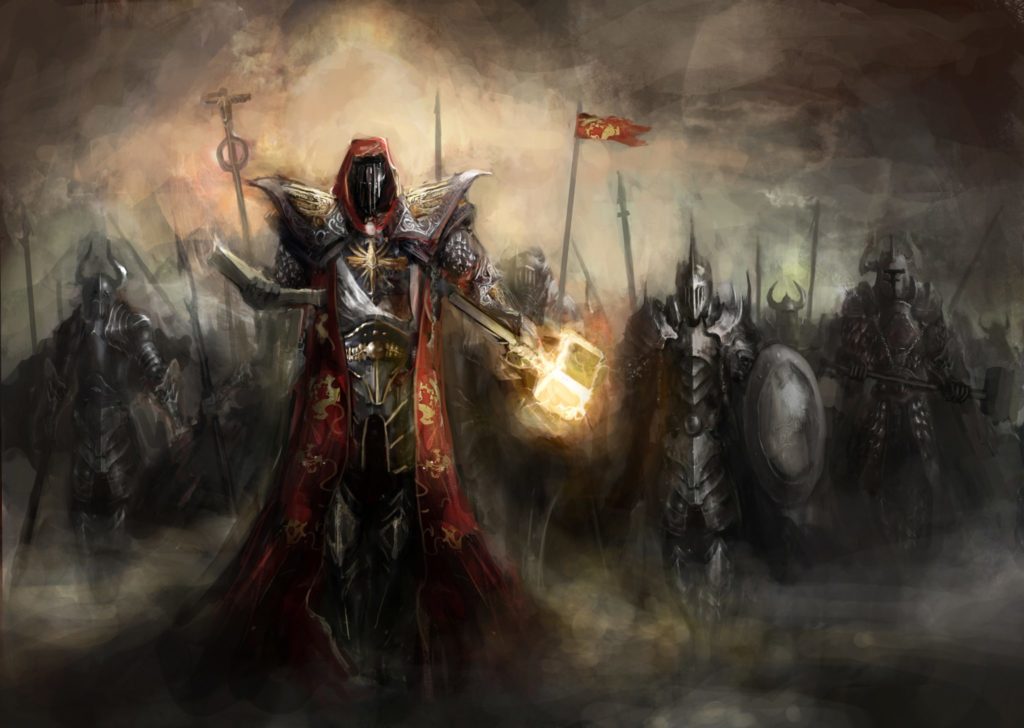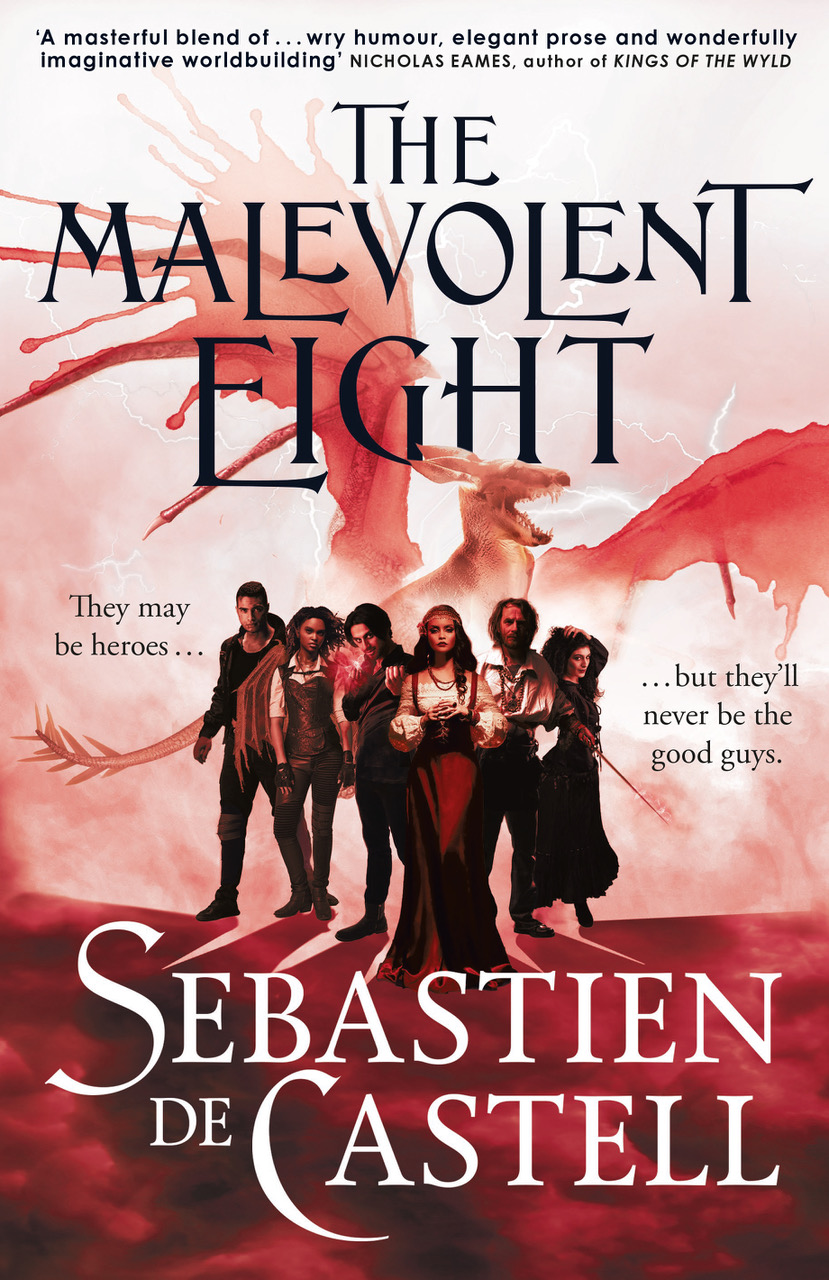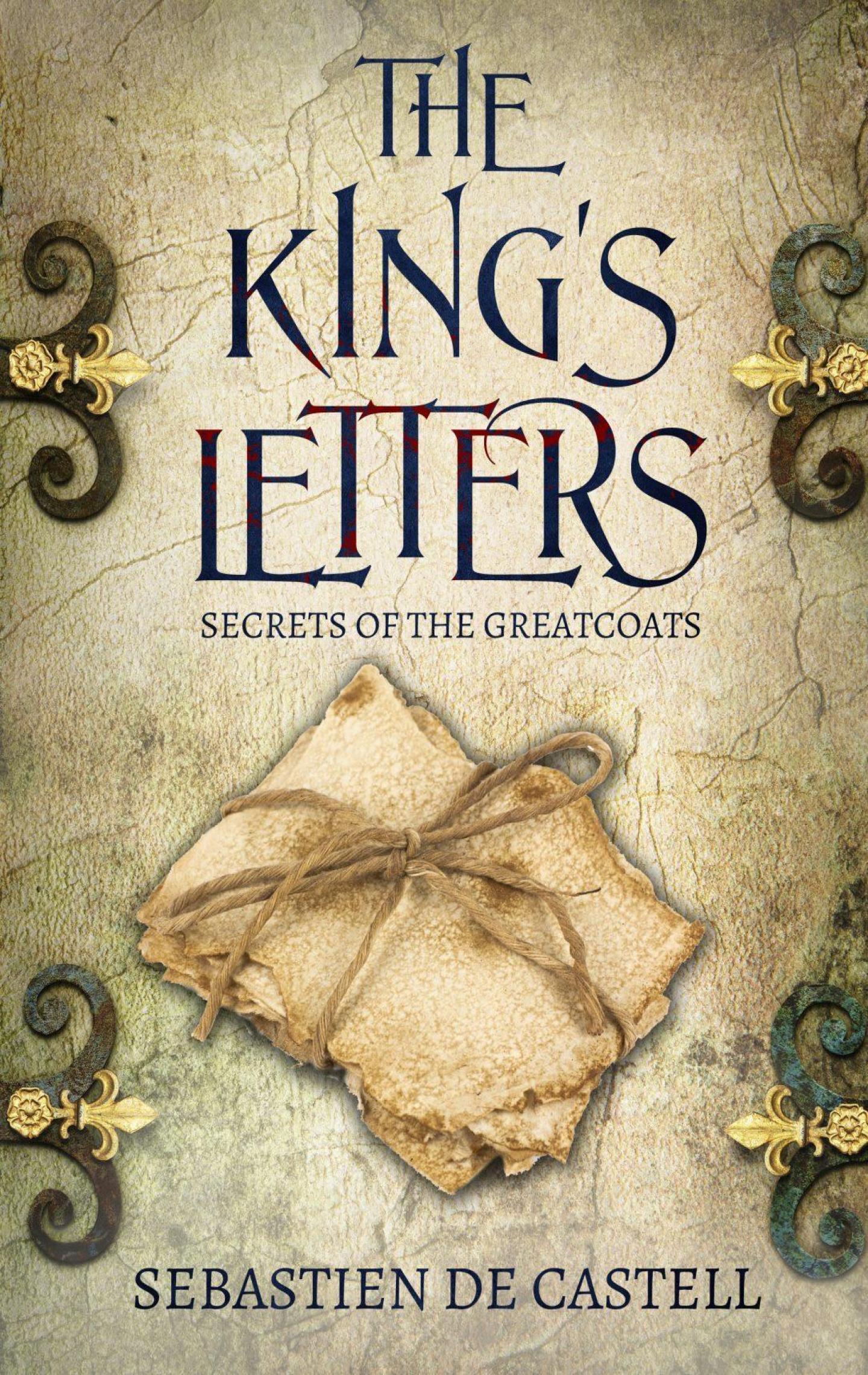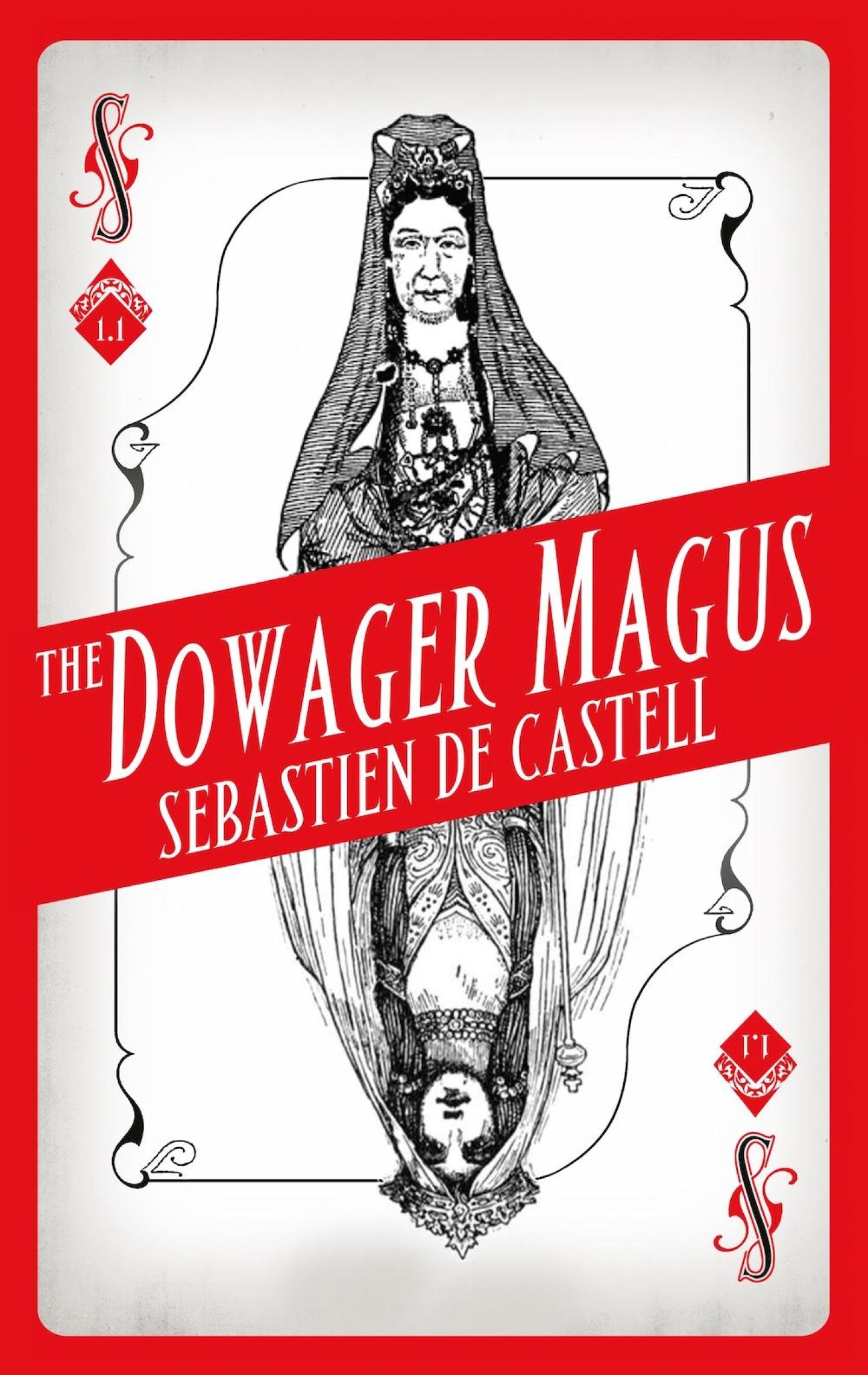My favourite thing about living in the Netherlands temporarily is just how easy it is to hop on a cheap flight to some of my favourite places in Europe.
Highlights this time around were:
- A visit with some of the team at Quercus to discuss the launch of Saint’s Blood.

- An excellent lunch to discuss Spellslinger with the fine folks at Bonnier.
- Seeing the terrific play, Nell Gwynn in Leicester Square.
- A quick stop at the British Museum for a wonderful tour of the new room featuring collections from the Enlightenment.






 The katana is a traditionally made Japanese sword and one of the finest bladed weapons ever devised. It’s designed for slicing and delivers devastatingly sharp cuts against flesh, sinew, and bone. Can it really decapitate a zombie in one blow? Absolutely. The Japanese used to test katanas by cutting through dead bodies (evidently practicing for the inevitable zombie apocalypse to come.) Regrettably, it’s useless against Godzilla, which makes me wonder if the Japanese were really all that prescient, after all.
The katana is a traditionally made Japanese sword and one of the finest bladed weapons ever devised. It’s designed for slicing and delivers devastatingly sharp cuts against flesh, sinew, and bone. Can it really decapitate a zombie in one blow? Absolutely. The Japanese used to test katanas by cutting through dead bodies (evidently practicing for the inevitable zombie apocalypse to come.) Regrettably, it’s useless against Godzilla, which makes me wonder if the Japanese were really all that prescient, after all. Your weapon of choice? The European bastard sword. This classic Medieval and early Renaissance monster is the jack-of-all trades you need to deliver judicious quantities of mayhem to all kinds of maniacally grinning mohawk monsters. Some hyena-faced lackey smirking at you while flipping his switch-blade in the air? Good – you’ve got more than enough reach to take him out. Armoured skateboarder is coming at you with a baseball bat? The bastard sword has the strength to parry that blow before you smite the post-apocalyptic Tony Hawk wannabe into the ground.
Your weapon of choice? The European bastard sword. This classic Medieval and early Renaissance monster is the jack-of-all trades you need to deliver judicious quantities of mayhem to all kinds of maniacally grinning mohawk monsters. Some hyena-faced lackey smirking at you while flipping his switch-blade in the air? Good – you’ve got more than enough reach to take him out. Armoured skateboarder is coming at you with a baseball bat? The bastard sword has the strength to parry that blow before you smite the post-apocalyptic Tony Hawk wannabe into the ground. You might be thinking rapier here, and if you were living in the 15th or 16th century I would agree with you. But the rapier is still a fairly heavy weapon to handle and that affects its speed. What you want here is a small sword. Yes, I realize the name ’small sword’ doesn’t inspire you with testosterone-filled confidence, but the small sword was fast – crazy fast – and the point was sharper than any blade that came before it. The only one thing that matters in a real swordfight is putting the pointy end into the other guy first. That’s why, by the late 17th century, the small sword had all but eliminated the rapier as the duelling weapon of choice. It’s also light enough to carry with you at all times and is surprisingly convenient for cooking hotdogs around the campfire.
You might be thinking rapier here, and if you were living in the 15th or 16th century I would agree with you. But the rapier is still a fairly heavy weapon to handle and that affects its speed. What you want here is a small sword. Yes, I realize the name ’small sword’ doesn’t inspire you with testosterone-filled confidence, but the small sword was fast – crazy fast – and the point was sharper than any blade that came before it. The only one thing that matters in a real swordfight is putting the pointy end into the other guy first. That’s why, by the late 17th century, the small sword had all but eliminated the rapier as the duelling weapon of choice. It’s also light enough to carry with you at all times and is surprisingly convenient for cooking hotdogs around the campfire. If murderous revenge is on your mind, then there’s only one weapon that will do the job the way it needs to be done: the N-Force Vendetta Double Sword. Yes, the N-Force has it all: big and bold enough to compensate for any masculine insecurities you may be experiencing, and with two separate blades you can offer one to your nemesis as a chance to defend themselves, or, heck, why not use one blade for your enemy and one for your spouse? Best of all, if you do a little research online you’ll quickly learn why the N-Force Vendetta Double Sword is the perfect blade if it turns out you haven’t stumbled upon the love of your life cheating on you with your best friend but instead have discovered them planning a particularly thoughtful birthday party for you.
If murderous revenge is on your mind, then there’s only one weapon that will do the job the way it needs to be done: the N-Force Vendetta Double Sword. Yes, the N-Force has it all: big and bold enough to compensate for any masculine insecurities you may be experiencing, and with two separate blades you can offer one to your nemesis as a chance to defend themselves, or, heck, why not use one blade for your enemy and one for your spouse? Best of all, if you do a little research online you’ll quickly learn why the N-Force Vendetta Double Sword is the perfect blade if it turns out you haven’t stumbled upon the love of your life cheating on you with your best friend but instead have discovered them planning a particularly thoughtful birthday party for you.
 A couple of weeks ago, the literary gods finally smiled on me and a copy appeared at a very reasonable of $15 USD plus shipping. The day I came back from my vacation it was right there waiting for me in a Trans-Atlantic shipping envelope. Finally, after all these years I’m reading Bard V and learning the final fate of Felimid Mac Fal. The funny thing is, after all these years, my tastes have changed and it’s not the type of book I’d buy anymore, but there’s something wonderful about searching for a lost book and one day finding it.
A couple of weeks ago, the literary gods finally smiled on me and a copy appeared at a very reasonable of $15 USD plus shipping. The day I came back from my vacation it was right there waiting for me in a Trans-Atlantic shipping envelope. Finally, after all these years I’m reading Bard V and learning the final fate of Felimid Mac Fal. The funny thing is, after all these years, my tastes have changed and it’s not the type of book I’d buy anymore, but there’s something wonderful about searching for a lost book and one day finding it.



 Les vieux maîtres de sort aiment raconter que la magie a un goût. Les sorts de braise ressemblent à une épice qui vous brûle le bout de la langue. La magie du souf e est subtile, presque rafraîchissante, un peu comme si vous teniez une feuille de menthe entre vos lèvres. Le sable, la soie, le sang, le fer… cha- cune de ces magies a son parfum. Un véritable adepte, autre- ment dit un mage capable de jeter un sort même à l’extérieur d’une oasis, les connaît tous.
Les vieux maîtres de sort aiment raconter que la magie a un goût. Les sorts de braise ressemblent à une épice qui vous brûle le bout de la langue. La magie du souf e est subtile, presque rafraîchissante, un peu comme si vous teniez une feuille de menthe entre vos lèvres. Le sable, la soie, le sang, le fer… cha- cune de ces magies a son parfum. Un véritable adepte, autre- ment dit un mage capable de jeter un sort même à l’extérieur d’une oasis, les connaît tous. 'I totally saw this coming,’ Reichis growled, leaping onto my shoulder as lightning scorched the sand barely ten feet from us. The squirrel cat’s claws pierced my sweat-soaked shirt and dug into my skin.
'I totally saw this coming,’ Reichis growled, leaping onto my shoulder as lightning scorched the sand barely ten feet from us. The squirrel cat’s claws pierced my sweat-soaked shirt and dug into my skin. The way of the Argosi is the way of water. Water never seeks to block another’s path, nor does it permit impediments to its own. It moves freely, slipping past those who would capture it, taking nothing that belongs to others. To forget this is to stray from the path, for despite the rumours one sometimes hears, an Argosi never, ever steals.
The way of the Argosi is the way of water. Water never seeks to block another’s path, nor does it permit impediments to its own. It moves freely, slipping past those who would capture it, taking nothing that belongs to others. To forget this is to stray from the path, for despite the rumours one sometimes hears, an Argosi never, ever steals.